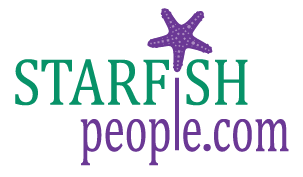2020 brought us a rollercoaster of change, testing our resilience and stretching our boundaries in every way. Some businesses have fared well, in fact booming from new opportunities, while others have just been trying to keep afloat. As they say, we are all in the same storm, just not in the same boat.
Thankfully, the new year brings with it the vaccine and another lockdown to hopefully steer us back onto a more constant path of recovery and certainty. So while times remain challenging, there is hope, which brings with it the more positive mindset to look to the prospects for the future.
Businesses reflecting back and looking at the lessons from the last 12 months have the opportunity to update their employment documents to ensure they not only reflect current employment practice, but also the approach for the future. The key elements for any business to consider and address now are:
- Does existing employment documentation reflect the current and future requirements from a legal, business and employee point of view?
- Does the business have the correct policies in place to deal with matters such as home and lone working, risk assessments, supervision, cyber security, data protection, wellbeing etc?
- Have existing policies, such as grievance and disciplinary procedures, been adjusted to allow for altered ways of working and the impact of government guidelines?
- Have full risk assessments covering mental health, lone working and stress been undertaken for each staff member?
- What additional training and support can be provided to employees?
If, after a review, changes need to be made to employment documentation, consider the following:
- Does the contract of employment permit minor changes being implemented? If not, then consultation will be required to amend contractual terms.
- Are there any obligations to inform or consult with employee representative bodies, unions or similar?
- Are more than 20 employees affected by the change and will it trigger collective consultation obligations?
- Are policies non-contractual, allowing adjustments to be implemented without consultation, or are they contractual?
These elements will inform how the change can be implemented and ensure that the correct legal process is followed. Investing time in the correct approach can avoid complaints from employees of unilateral variation of contract and the subsequent risks of claims in the employment tribunal.
The increased use of remote working has also brought with it a need to adapt the approach to risk assessments under the Health and Safety at Work Act 1974. Because of the constant change we are experiencing, risk assessments should be updated and reviewed regularly with hse.gov.uk, which also provides some excellent resources. With the remoteness of teams, focused training for all employees (not just managers) on recognising and managing risk and identifying signs of stress are of paramount importance.
While all of the above will help businesses tick the boxes for compliance, ensuring compliance alone will not result in success or recovery in these challenging times. This greatly depends upon creating and maintaining the right culture for your organisation and supporting your employees now more than ever.
You can’t create the right culture overnight but being clear and transparent with your communications as an employer helps to breed a culture of openness and inclusion. Start from the top down, and be open, transparent and authentic. Show the workforce the culture and values that are important, don’t just tell. In time persistent authentic communication creates a safe space for the workforce to be open and transparent themselves. This, in turn, provides the business with unique insight into how to keep its people supported, motivated and engaged and ensure the growth of the business.
So yes, it’s time to spring clean and make sure that your business is compliant, remember all the benefits of good communication; your culture and values; and the wellbeing of each and every member of your business. Ultimately, it is our people who create the success of the business.
Take a look at our Starfish People Kickstart option designed with SME’s in mind.
Helen Price-Evans is an NLP Master Practitioner and a certified Mental Health First Aider at Starfish People.
Contact us in confidence by completing our secure contact form

Alternatively, call us direct on 01243-607357 or email [email protected]
Adapted from an article by Jennifer Andrews


